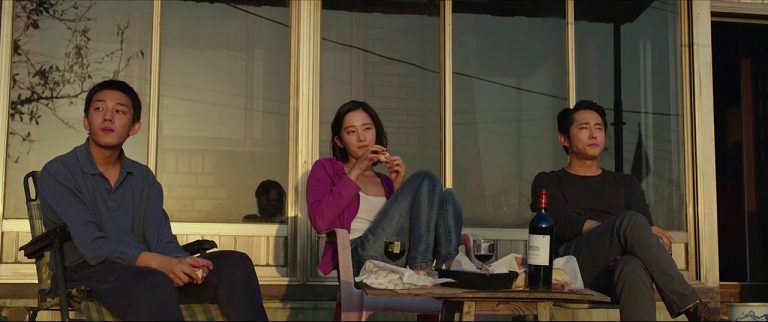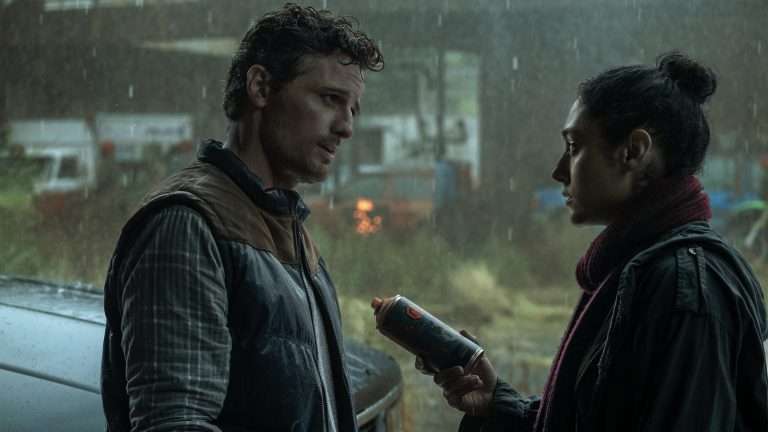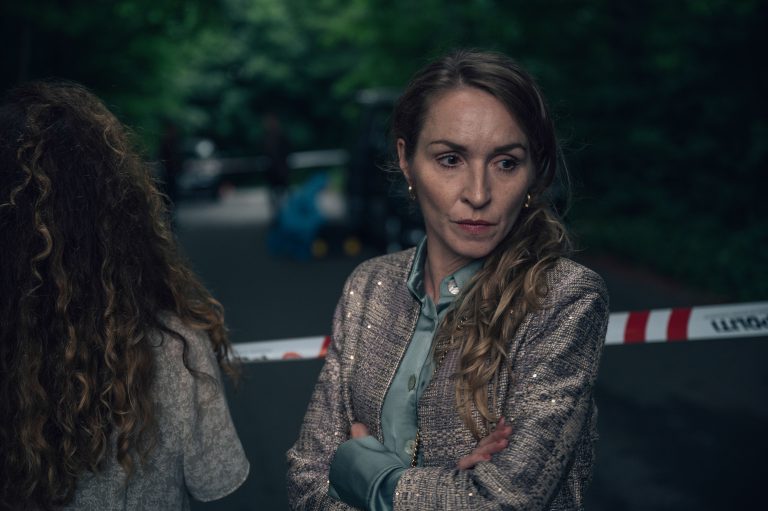When looking at the sheer number of films that Hollywood has remade within the most recent decade, the decision to revamp Curtis Hanson’s psychological thriller “The Hand That Rocks The Cradle” was actually logical. While it was a film that impressively managed to embrace its soapish qualities without verging into outright satire, “The Hand That Rocks The Cradle” was never heralded as a masterwork, especially when compared to Hanson’s legitimate classics, like “L.A. Confidential,” “Wonder Boys,” and “8 Mile.”
Remaking a ‘90s film with some fairly retrograde politics may have given “The Hand That Rocks The Cradle” an opportunity to redefine itself, particularly in an era where conversations about familial roles and equity struggles are more fruitful. Unfortunately, the 2025 remake from Michelle Garza Cervera seems to iron out any of the edges that the original material had, resulting in a rather paint-by-numbers paranoia thriller that lacks any provocation.
It’s to the credit of the remake that the new “The Hand That Rocks The Cradle” does somewhat flip the narrative of its predecessor when it comes to the dynamics between the central figures. Replacing Rebecca De Mornay’s vindictive Peyton Flanders is Maika Monroe in the role of Polly Murphy, a young caregiver who has been evicted from her property.
Although Polly initially meets with attorney Caitlyn Morales (Mary Elizabeth Winstead) to discuss the legal options that she has, they end up forging a deeper connection when they once again cross paths. Caitlyn, an overworked mother with an infant on the way, sees an opportunity to help out an unemployed acquaintance when she hires Polly to be her children’s nanny. Although Caitlyn’s husband Miguel (Raúl Castillo) has some suspicions about Polly, the couple is unable to predict the sinister trap that they’ve sprung.
If the original “The Hand That Rocks The Cradle” had one component that could be described as “subtle,” it’s that it questioned the nature of revenge when it came to abusive situations. De Mornay’s character was the loving partner to a man accused of misconduct, who later took his own life. Her goal was to exact vengeance upon his accuser by slowly destroying her family.
Perhaps this would be seen as a regressive motivation for a female villain in 2025, but the new motivation connected to Polly is so ridiculous and vague that it nearly feels like a farce. Beyond the generic nature of Polly’s backstory, the connection to Caitlyn is so underdeveloped that there’s no justification for why she has become such a subject of animosity.
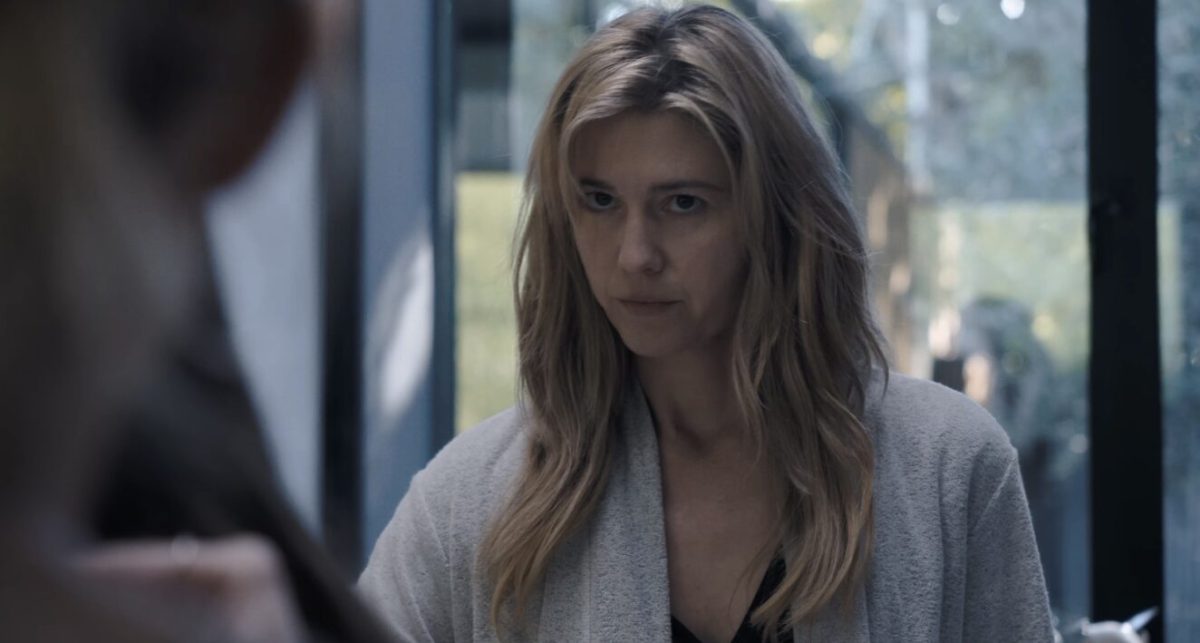
The class component of “The Hand That Rocks The Cradle” is clearly intended to evoke the anti-capitalistic themes of recent genre hits, including those as adored as “Parasite” and as provocative as “Saltburn.” Unfortunately, none of those qualities could apply to “The Hand That Rocks The Cradle.”
There’s not enough interiority to Polly as a character to get a sense of what burdens she’s been faced with, as it remains unclear how much truth is within her statements, and what has been used to stoke the sympathies of her employers. Despite the loaded terminology and subjects that the film approaches when it comes to gender roles and sexuality, it’s surprisingly tame, and doesn’t differentiate itself from the flashier, melodramatic psychological thriller it may have been intending to subvert.
Also Read: The Ultimate Scorned Lover: The Story of Alex in Fatal Attraction (1987)
Perhaps the biggest shift between the two films is the “Fatal Attraction”-esque obsession that Polly has with Caitlyn, whom she sees as both someone she wants to resemble and an object of desire. The psychosexual motivations are messy, even when considering that Polly is confused by her own feelings. It doesn’t help that the film treats any suggestion of LGBTQ relationships as being just as scandalous as the malevolent behavior that Polly displays.
One of the more intriguing aspects of the original “The Hand That Rocks The Cradle” was the maternal role that De Mornay’s character sought to occupy in the lives of her new employers, but in the remake, Polly seems only interested in managing the behavior of the children in order to gauge a reaction from Caitlyn.
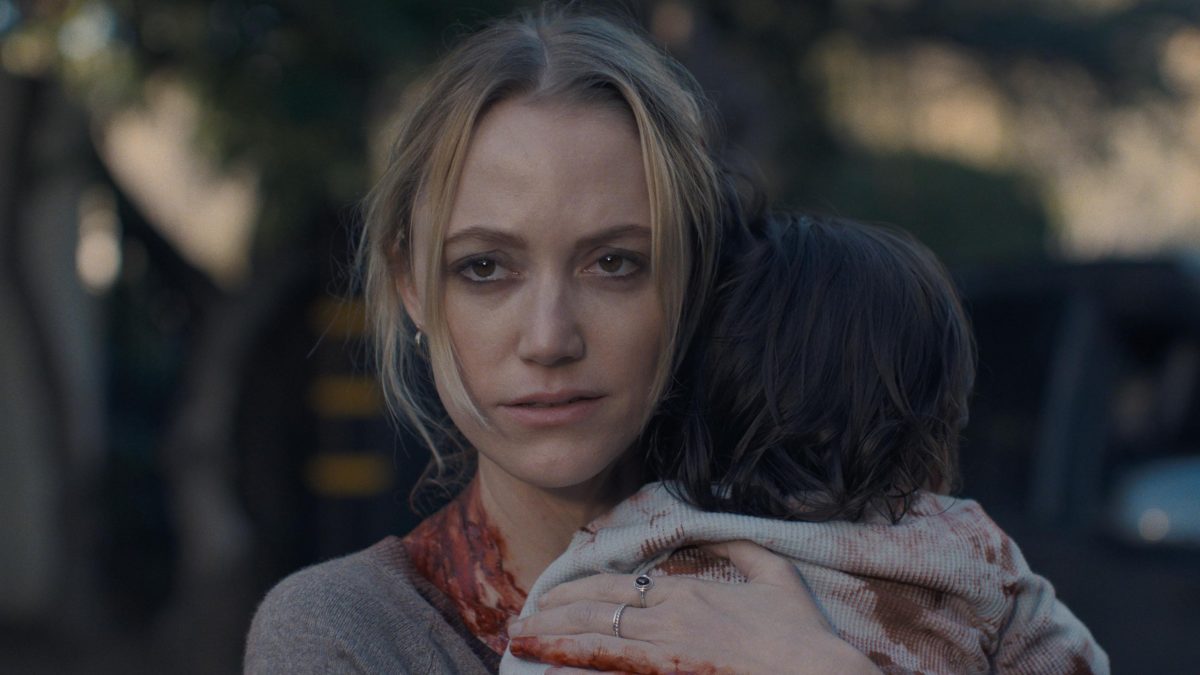
Despite the glossy, overdesigned sets, the likes of which have become far too common for streaming originals, “The Hand That Rocks The Cradle” does little to explore the community that the Morales family exists in, and seems ignorant of the advances in technology that have been made since 1992.
The brief hints at the surrounding culture exist in the form of the Morales family friends, Stewart (Martin Starr) and Bethany (Riki Lindhome), who are seemingly inserted purely for the sake of including an awkward dinner conversation. It seems odd to cast two performers with comedic talent in roles that only scratch the surface of a satirical goldmine, particularly when the film itself doesn’t seem to have a sense of humor.
Monroe is a talented actress who has more than proven her merit in genre films like “The Guest,” “It Follows,” and “Longlegs,” but her performance is pitched in an unusual tone. Polly is meant to be more unnerving than she is scary, but she never presents the type of charisma or open-heartedness that would justify Caitlyn’s decision to give her access to her family.
Perhaps this was an effort to explore Caitlyn’s relationship with her own guilt about being wealthy, but the aforementioned dinner scenes with Starr and Lindhome seemed intended to show that the Morales were “the good ones” among the upper-class families. The non-presence that Miguel has in the story (which is no fault of Castillo, whose performance is solid) makes the suggestion of attraction between Caitlyn and Polly ring even more false.
There is nothing inherently wrong with remakes, and “The Hand That Rocks The Cradle” actually resembles the type that Hollywood should make more of. It’s often that mediocre films can be remade into masterpieces, as was the case with “Ocean’s Eleven,” “The Girl With The Dragon Tattoo,” “The Departed,” or “The Thing” among others.
Unfortunately, “The Hand That Rocks The Cradle” both fails to make the necessary updates to the material and misses any of the prickly salaciousness that had made Hanson’s film so worthy of discourse. If the original “The Hand That Rocks The Cradle” was at least a flawed film with some unforgettable moments, then the remake seems destined to fade into obscurity.



